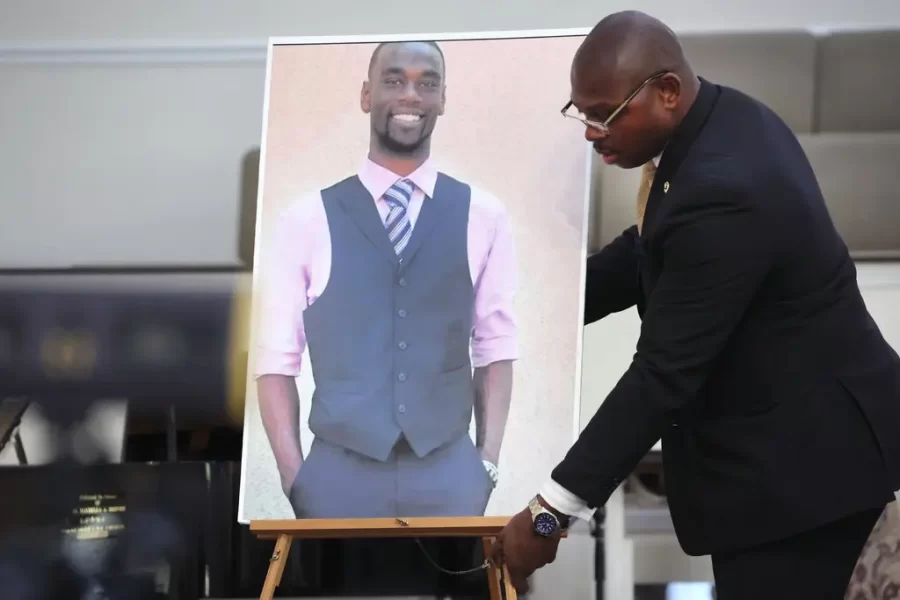Tyre Nichols Case Reminds of the Police Force’s Systemic Racism
A portrait of Tyre Nichols displayed at his memorial service for him held on Jan. 17, courtesy of Scott Olson from Getty Images.
March 17, 2023
Tyre Nichols, a 29-year-old Black man from Memphis, Tennessee was killed by 5 Black Memphis police officers after he was stopped for a traffic violation. Tyre has now been added to the exhaustive list of other Black victims of police brutality including but not limited to: Rodney King, George Floyd, Breyonna Taylor, Elijah McClain, Daunte Wright, and Stephon Clark. For Black people in America, the question always raised is, ¨When will it stop?¨ and for many, this systemic issue will only ever be treated as a routine tragedy.
Tyre´s case highlights a more recent aspect of police brutality and its reform as it reveals that diversifying the police force does not curtail abuse from the police system. Tyre was a resident of a predominantly Black city with a Black chief of police, and yet he was still subjected to the innate violence of America’s policing institution. Now America is forced to face the issue that is continuously shoved under the rug, as police brutality doesn’t stem from the notion of “ Black vs. White,” but rather the issue of a racist system that overarchingly protects itself above the well-being of the people. Even despite the fact that a different perspective of police reform has been addressed, this instance of police brutality is not any different from the others, as the actions of all police officers who abuse their power by brutalizing Black people are not in any way an uncommon event.
In a recent interview with Prince George´s County Chief of Police, Malik Aziz, he commented on the Tyre Nichols case saying his murder was another instance of police officers ¨not honoring their badge.¨ The county´s police department has made many changes including the creation of the Chief´s Advisory Committee ¨made up of community members that [the Chief] meets with once a month to discuss concerns and address issues.¨ The challenges that the PGCPS police department face to institute those changes arrive when they figure out how to ¨exchange interactions in a rapidly changing environment that is social-media driven,¨ but continue to make an effort in listening to the community they serve.
The changes Chief Aziz highlighted have been seen across the country following the murder of George Floyd where police reform has begun in cities all around the country. One being in our local neighborhood of Greenbelt, where in 2020, Greenbelt Police improved their de-escalation tactics, outlawed no-knock warrants, and standardized body cameras on all officers. Although this is just the beginning of the necessary actions to reverse the decentralization of police abuse to make meaningful change, it is a good start.
The overarching takeaway of the Tyre Nichols case and every instance of police brutality is that we can not let ignorance continue to enforce a cycle of oppression, but instead attack the root of the problem. Anti-Blackness controls America and the lack of action time and time again goes to show the urgency of condemning the police system completely — because thoughts and prayers have never been enough.




